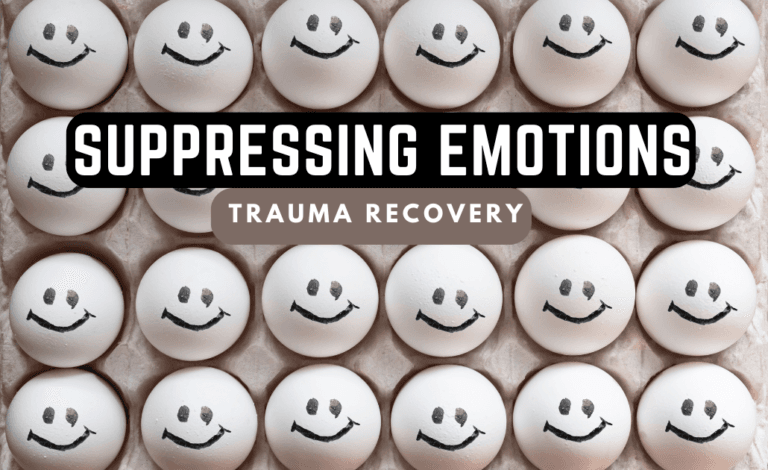61 Ways that You May be Emotionally Manipulated and Not Even Realize It
Emotional Manipulation
Emotional manipulation can be so subtle that it’s often difficult to detect. Manipulators use a variety of tactics to control or influence someone’s emotions for their own gain, often leaving the victim feeling confused, disoriented, or guilty. Whether it’s in a romantic relationship, friendship, or work environment, recognizing these behaviors is crucial to protecting your mental health. Here’s a comprehensive list of 61 ways someone may emotionally manipulate you.
Listen to the Podcast episode!
Tactics of Emotional Manipulation
1. Gaslighting
Convincing you that your memories or perceptions are incorrect to make you doubt your reality.
2. Playing the Victim
Always portraying themselves as the one who’s been wronged to elicit sympathy and deflect blame.
3. Withholding Affection
Giving affection only when it serves their purpose, often pulling away to make you work harder for their approval.
4. Silent Treatment
Refusing to communicate until you apologize or give in, making you anxious and desperate for their attention.
5. Guilt-Tripping
Making you feel responsible for their feelings or actions, even when you’ve done nothing wrong.
6. Love-Bombing
Overwhelming you with affection, attention, and compliments to make you dependent on their validation.
7. Devaluing Your Accomplishments
Dismissing or downplaying your successes to make you feel inadequate or undeserving.
8. Giving Backhanded Compliments
Disguising insults as compliments to subtly lower your self-esteem.
9. Constant Criticism
Finding faults in everything you do to wear down your self-confidence.
10. Creating Triangles
Involving a third party in your disputes to make you feel isolated or like the odd one out.
Has Someone Emotionally Manipulated You?
11. Feigning Ignorance
Pretending they don’t understand your concerns or requests to avoid accountability.
12. Blaming You for Their Problems
Shifting the responsibility for their failures onto you, making you feel guilty.
13. Shifting the Goalposts
Changing expectations after you’ve met their previous demands, ensuring you never feel like you’re good enough.
14. Minimizing Your Feelings
Dismissing or invalidating your emotions to make you feel overly sensitive or irrational.
15. Overloading with Information
Bombarding you with facts, details, or irrelevant information to confuse and overwhelm you.
16. Using “If You Really Loved Me” Statements
Coercing you into doing things you don’t want to by questioning your loyalty or love.
17. Exaggerating Problems
Blowing small issues out of proportion to keep you off-balance and constantly trying to fix things.
18. Acting Helpless
Pretending they can’t handle basic tasks so you end up doing everything for them.
19. Rewriting History
Twisting past events to make you seem like the villain and themselves the victim.
20. Isolating You from Others
Slowly separating you from friends or family to increase your dependence on them.
More...
21. Pushing Your Buttons
Deliberately provoking you, knowing exactly what will upset or frustrate you.
22. Playing Dumb
Acting clueless about things they understand perfectly well, forcing you to take the lead on every issue.
23. Lying by Omission
Leaving out key details to mislead you without technically lying.
24. Making Jokes at Your Expense
Disguising insults as humor, then accusing you of being too sensitive if you object.
25. Giving You the Cold Shoulder
Ignoring you after a disagreement to punish you and make you feel guilty for confronting them.
26. Making Everything About Them
Shifting every conversation back to their needs, experiences, or emotions, leaving no room for yours.
27. Using Emotional Blackmail
Threatening to hurt themselves or others to manipulate you into doing what they want.
28. Neglecting Your Needs
Intentionally ignoring your emotional or physical needs to assert control over your happiness.
29. Exaggerating Their Contributions
Making you feel indebted by constantly reminding you of all they’ve done for you.
30. Interrupting or Talking Over You
Cutting you off to assert dominance in conversations and make you feel unheard.
And More...
31. Creating a Sense of Urgency
Forcing you to make decisions quickly, without giving you time to think, often to your detriment.
32. Giving You Mixed Signals
Alternating between affection and coldness, leaving you constantly guessing about their true feelings.
33. Invalidating Your Achievements
Suggesting your successes were due to luck or someone else’s effort, making you doubt your own abilities.
34. Turning Others Against You
Manipulating those around you to make it seem like you’re the problem, fostering isolation.
35. Using Conditional Love
Making their affection contingent on your behavior, forcing you to constantly strive for their approval.
36. Overstepping Boundaries
Ignoring your limits or personal space to establish dominance.
37. Testing Your Loyalty
Forcing you to prove your devotion in extreme ways, often at the cost of your own well-being.
38. Giving Unsolicited Advice
Constantly offering unwanted guidance to undermine your confidence in making decisions.
39. Accusing You of Overreacting
Labeling your valid concerns or reactions as exaggerated to make you question your own emotional responses.
40. Bringing Up Your Past Mistakes
Reminding you of past errors long after they should be relevant, to keep you feeling guilty or inferior.
41. Making You Second-Guess Yourself
Constantly questioning your decisions to undermine your confidence and make you rely on their judgment.
42. Playing Hot and Cold
Alternating between being overly affectionate and distant to keep you on edge.
43. Flattering to Manipulate
Using excessive compliments to make you feel special, only to later exploit your trust.
More...
44. Appearing Vulnerable
Acting overly vulnerable to elicit sympathy and make you responsible for their well-being.
45. Exploiting Your Empathy
Taking advantage of your kindness and willingness to help by always needing something from you.
46. Deflecting Responsibility
Shifting the blame for their actions or mistakes onto external factors or other people, never themselves.
47. Denying They Said Something
Insisting they never made a statement they clearly did to make you doubt your memory.
48. Making Comparisons
Comparing you unfavorably to others to make you feel insecure and more eager to please them.
49. Feigning Outrage
Becoming overly dramatic or angry to divert attention from the real issue.
50. Giving You the Ultimatum
Forcing you into an all-or-nothing decision by threatening to end the relationship if you don’t comply.
51. Controlling Your Resources
Manipulating access to finances, transportation, or other essential resources to maintain power over you.
52. Feigning Innocence
Pretending they didn’t know what they were doing was wrong to avoid consequences.
53. Spinning the Story
Reframing events in their favor to cast themselves as the hero or victim.
Which One Stands Out to You?
54. Promising Change
Saying they’ll improve or stop certain behaviors, but never actually following through.
55. Emotional Outbursts
Using dramatic displays of emotion to control the atmosphere or shut down disagreements.
56. Monopolizing Conversations
Dominating discussions so that you never get to express your thoughts or needs.
57. Making You Defend Yourself Constantly
Putting you on the defensive so you spend more time explaining yourself than addressing their actions.
58. Dismissing Your Ideas
Laughing off or outright rejecting your contributions to make you feel unimportant.
59. Stonewalling
Refusing to engage in conversation or shutting down any attempts at resolving issues.
60. Changing the Subject
When confronted, quickly shifting to a different topic to avoid accountability.
61. Emotional Roller Coasters
Creating a dynamic where one minute they’re loving and kind, the next they’re cold and distant, keeping you hooked and craving stability.
Conclusion
Recognizing these subtle tactics of emotional manipulation is the first step toward protecting your mental well-being. Once you’re aware, you can set boundaries, confront the behaviors, or even remove yourself from harmful situations. Stay mindful of how others make you feel, and trust your instincts—manipulation thrives in confusion, but clarity is your defense.
emotionally manipulated emotionally manipulated emotionally manipulated emotionally manipulated emotionally manipulated emotionally manipulated emotionally manipulated emotionally manipulated emotionally manipulated emotionally manipulated emotionally manipulated emotionally manipulated







